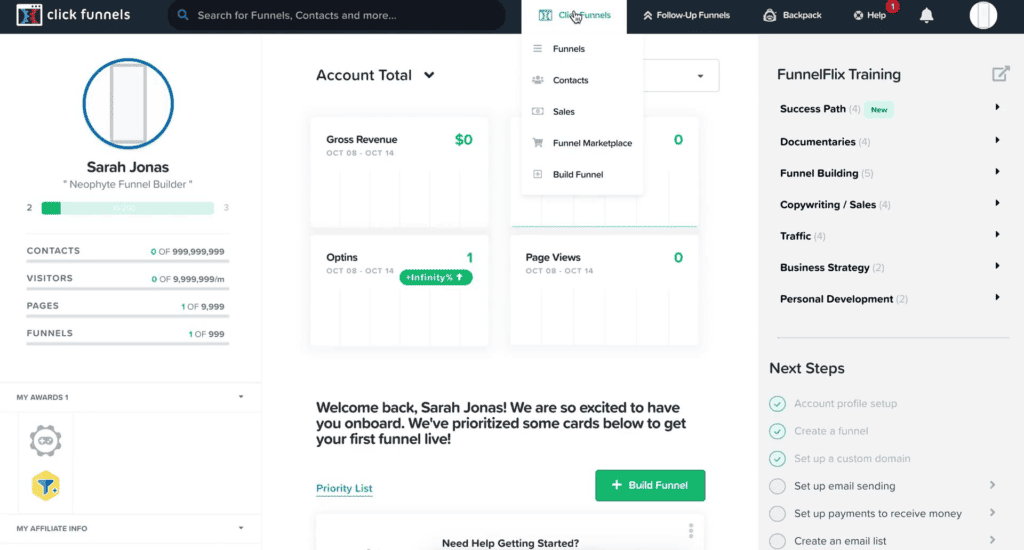Importance of Email Marketing Campaigns
Email marketing is a vital component of any effective marketing strategy. By leveraging automation, you can enhance engagement with your customers and significantly improve the effectiveness of your campaigns.
Benefits of Automated Emails
Automated emails offer numerous advantages over traditional manual email methods. One primary benefit is the substantial increase in conversion rates. Automated emails drive 180% higher conversion rates than batch emails (VentureBeat). This boost is largely due to the personalized nature of automated communications, which can be customized to each shopper’s interests. In fact, customized automated emails generate 320% higher revenue than manually sent messages (Campaign Monitor).
Additional benefits include:
- Time Savings: Automated workflows allow you to manage email campaigns without investing hours into crafting individual messages. This operational efficiency saves time and allows for better allocation of resources.
- Cost Reduction: Email automation can reduce costs associated with maintaining large sales teams. By automating follow-ups and communications, less experienced marketers can effectively manage campaigns, streamlining your overall marketing efforts (Avidly Agency).
- Lead Generation: Businesses utilizing automation software experience twice as many leads as those who don’t, underscoring its importance in your email marketing strategy.
Driving Revenue with Email Marketing
Investing in email marketing campaigns yields remarkable financial returns. Research indicates that email marketing generates an average return of $42 for every $1 spent. This impressive ROI stems from the ability to target specific segments of your audience with tailored messages, driving higher engagement and conversion rates.
Consider the following statistics as you assess the potential revenue impact of your email marketing efforts:
| Aspect | Impact |
|---|---|
| Conversion Rate Improvement | 180% higher with automation |
| Revenue Increase | 320% higher with customization |
| Average ROI | $42 for every $1 invested |
Optimizing your approach to email marketing campaign automation can transform your communication strategy, enhance customer relationships, and maximize your profitability. For further insights on creating effective campaigns, refer to our section on effective email marketing campaigns and explore additional strategies presented in our resources on digital marketing campaign strategies.
Maximizing Email Automation
When it comes to enhancing your marketing efforts, maximizing email automation is key. Two crucial elements in this context are customer engagement and personalization.
Enhancing Customer Engagement
Email marketing campaign automation plays a vital role in fostering stronger customer engagement. Businesses that effectively utilize email workflows can appear more organized and responsive, which significantly fosters brand affinity. Research indicates that 87% of brands identify email as critical to business success (Agency Analytics). By establishing multiple touchpoints with customers through automated emails, you can keep them informed and engaged with your brand.
To illustrate the impact of automated emails on engagement, consider the following table depicting average customer engagement metrics:
| Engagement Metric | Manual Campaigns | Automated Campaigns |
|---|---|---|
| Open Rate | 20% | 30% |
| Click-Through Rate (CTR) | 2% | 5% |
| Conversion Rate | 1% | 3% |
Automated messages can also facilitate timely follow-ups, reminders, and updates, enhancing the overall customer experience. This responsiveness contributes to a better perception of your brand, which is essential in today’s competitive landscape.
Achieving Personalization
Personalization is another critical aspect of maximizing email automation. By leveraging automation tools, you can segment your audience based on their behaviors, preferences, and interests. This allows you to tailor your messaging for various customer segments, ultimately enhancing the return on investment (ROI) for your email marketing campaigns. Personalization techniques can improve engagement by ensuring that your audience receives relevant content.
According to findings, companies that personalize email content through segmentation can achieve a significant enhancement in financial returns (Zapier). For instance, consider the following breakdown of personalized email effectiveness:
| Personalization Strategy | Increase in Engagement (%) | Increase in Sales (%) |
|---|---|---|
| Segmented Campaigns | 35% | 20% |
| Dynamic Content | 42% | 25% |
| Behavioral Targeting | 50% | 30% |
Utilizing effective email marketing tools not only saves time and reduces costs by streamlining your processes but also empowers even less-experienced marketers to create successful campaigns. By automating and personalizing your email interactions, you can foster deeper connections with your customers and encourage long-term loyalty.
For more insights into effective strategies in your email automation efforts, explore our resources on effective email marketing campaigns and marketing campaigns examples.
Successful Marketing Automation Examples
Examining successful implementations of email marketing campaign automation can provide valuable insights for your own strategies. Here are notable examples from leading brands that highlight effective automated email campaigns.
ZURB’s Effective Welcome Emails
ZURB has demonstrated remarkable success with its automated welcome email strategy. With open rates exceeding 70-75% and click-through rates ranging from 40-45%, their approach shows how well-designed welcome emails can engage new subscribers. The immediacy and relevance of these emails prime new customers for further interactions.
Mumsnet’s Personalized Newsletters
Mumsnet employs a clever automation strategy that sends pregnancy newsletters triggered by due dates. This effective use of automation offers personalized experiences tailored to each subscriber’s stage in pregnancy. By connecting with users at such a pivotal moment in their lives, Mumsnet enhances user engagement and satisfaction.
BuzzFeed’s Engaging Newsletters
BuzzFeed takes advantage of its vast content pool by offering over 20 specialized email newsletters that cater to various interests. Their automation strategy includes sending targeted content regarding timely courses, such as the “4-Week Get Fit Challenge.” This approach results in highly engaged subscribers who are eager to interact with the tailored content (Campaign Monitor).
Apartment Therapy’s Educational Emails
Apartment Therapy effectively uses automated emails for educational purposes, such as The Kitchn’s baking school. Their emails not only provide valuable content but also boast open and click-through rates that exceed 55%. By focusing on education, they position themselves as a trusted authority in home and lifestyle, encouraging continued engagement from subscribers.
On’s Customer Experience Automation
On, a Swiss-based running shoe company, utilizes automation to enhance customer experience significantly. They send automated welcome emails that guide customers through a shoe selection process and provide reminders about when to purchase a new pair of shoes based on their documented running activity. This personalized and proactive approach strengthens customer relationships and encourages repeat business (Campaign Monitor).
Incorporating insights from these examples can help shape your own email marketing campaign automation strategies. For more inspiration, consider exploring marketing campaigns examples or effective email marketing campaigns.
Key Metrics for Email Campaign Success
To effectively assess the success of your email marketing campaign automation, it’s vital to focus on key performance indicators (KPIs). Two significant metrics to consider are the email delivery rate and the click-through rate (CTR). These metrics provide valuable insights into the effectiveness of your campaigns and influence future strategies.
Email Delivery Rate Analysis
The email delivery rate is the percentage of emails that successfully reach the recipients’ inboxes, calculated as follows:
[
\text{Delivery Rate} = \frac{\text{Number of Sends} – \text{Number of Bounces}}{\text{Number of Sends}} \times 100
]
Ensuring that your emails are delivered successfully and not marked as spam is crucial for your email marketing campaigns. A high delivery rate typically indicates that your list is clean and that your sending practices are effective.
| Metric | Target Value |
|---|---|
| Acceptable Delivery Rate | Above 95% |
| Bounce Rate | Below 2% |
| Unsubscribe Rate | Below 0.5% |
Monitoring these metrics will help ensure that your messages reach your audience effectively.
Click-Through Rate (CTR) Importance
The click-through rate (CTR) measures how many recipients clicked on one or more links within your email, expressed as a percentage:
[
\text{CTR} = \frac{\text{Number of Clicks}}{\text{Number of Opens}} \times 100
]
CTR provides insights into how well your email’s content and design resonate with your audience. A higher CTR signifies effective email engagement and encourages you to refine your messaging and offers accordingly (Agency Analytics).
| Metric | Target Value |
|---|---|
| Acceptable CTR | Above 2% |
| High-Performing CTR | Above 5% |
A comprehensive understanding of CTR can help improve campaign outcomes, guiding adjustments in content strategies for better engagement (Salesforce). To enhance your email marketing performance, consider exploring strategies as discussed in our article on effective email marketing campaigns.
Choosing the Right Email Automation Software
Selecting the appropriate email automation software is essential for optimizing your email marketing campaign automation. This section reviews four leading options: Customer.io, ActiveCampaign, Mailchimp, and Klaviyo, discussing their standout features and pricing structures.
Customer.io Features
Customer.io is recognized for its powerful workflow automations. It offers a comprehensive selection of marketing channels that you can automate, making it suitable for various marketing efforts. The software begins at a cost of $100 per month.
| Feature | Description |
|---|---|
| Automation Workflows | Highly customizable workflows for targeting specific customer segments. |
| Channel Variety | Allows automation across email, SMS, and push notifications. |
| Flexible Integrations | Integrates with various third-party applications for seamless marketing. |
For more information, consider exploring platform features and capabilities with automated marketing campaign tools.
ActiveCampaign’s AI Capabilities
ActiveCampaign provides robust AI capabilities, focusing on multilingual workflows and integrated AI tools. This feature is particularly beneficial for businesses looking to expand their reach into different language markets. ActiveCampaign’s pricing starts from $15 per month.
| Feature | Description |
|---|---|
| Multilingual Support | Customizable workflows catering to diverse language needs. |
| AI Tools | Smart segmentation and personalization options using AI insights. |
| Comprehensive Reporting | High-quality analytics to measure campaign effectiveness. |
Learn more about how to structure your campaigns with digital marketing campaign strategies.
Mailchimp’s Third-Party Integrations
Mailchimp is well-regarded for automating email marketing as well as integrating with third-party customer acquisition channels. It offers a free plan with options starting from $13 per month, making it viable for businesses of all sizes.
| Feature | Description |
|---|---|
| Third-Party Integrations | Seamless connection with various e-commerce platforms and tools. |
| User-Friendly Interface | Intuitive design enhancing user experience for campaign management. |
| Free Plan Availability | Cost-effective option for small businesses to start automating. |
If you wish to refine your approach, consider reviewing various marketing campaigns examples for inspiration.
Klaviyo’s User-Friendly Functionality
Klaviyo is recognized for its user-friendly interface, showcasing drag-and-drop functionality throughout the platform. It offers a free plan as well, with pricing starting from $20 per month.
| Feature | Description |
|---|---|
| Drag-and-Drop Functionality | Simplifies email design and workflow creation. |
| Advanced Analytics | Detailed performance metrics to enhance email strategies. |
| E-commerce Focused | Tailored for online businesses, advancing customer engagement. |
For further insights, examining successful marketing campaigns case studies can provide robust strategies applicable to your initiatives.
By comparing these influential email automation software options, you can identify the one that aligns best with your business needs and campaign goals.
Benefits of Email Automation Workflows
Email automation workflows offer several advantages that can significantly enhance your marketing strategy. By implementing these systems, you can efficiently nurture leads and strengthen your brand affinity.
Nurturing Leads Efficiently
Email automation workflows are designed to send a series of scheduled emails aimed at nurturing leads until they become customers. This process is vital in the inbound marketing methodology, as highlighted by HubSpot. Automated emails deliver relevant and engaging information, ensuring that prospective customers receive valuable content that increases their receptiveness to sales approaches.
Here’s a table illustrating the typical stages of lead nurturing through automated emails:
| Stage | Email Type | Purpose |
|---|---|---|
| 1 | Welcome Email | Introduce your brand and set expectations |
| 2 | Educational Content Email | Provide insights and knowledge related to their interests |
| 3 | Product/Service Highlight Email | Present offerings tailored to their needs |
| 4 | Call-to-Action Email | Encourage lead to take a specific action (e.g., make a purchase, sign up for a webinar) |
By maintaining consistent communication, you create a more personalized experience for your audience, significantly increasing the likelihood of conversion.
Enhancing Brand Affinity
Another significant advantage of email automation workflows is the ability to enhance brand affinity. These workflows create multiple touchpoints with your audience, making your business appear more organized and responsive. When leads receive timely and relevant information, they develop a greater awareness and understanding of your brand (Avidly Agency). This consistent interaction helps to build trust and brand loyalty, which are crucial in today’s competitive market.
Here are a few metrics that can indicate improved brand affinity through email automation:
| Metric | Description |
|---|---|
| Open Rate | Percentage of recipients who open your emails |
| Click-Through Rate (CTR) | Percentage of opened emails that result in clicks |
| Customer Retention Rate | Percentage of customers who continue to engage with your brand over time |
| Brand Awareness Surveys | Feedback from customers regarding their knowledge and perception of your brand |
Using automated workflows not only saves time but also reduces costs associated with maintaining a large sales team dedicated to calling potential leads. This efficiency allows less experienced marketers to manage workflows effectively without sacrificing quality. For further insights into effective strategies, explore our content on effective email marketing campaigns and automated marketing campaign tools.
Effective Email Automation Strategies
Implementing effective email automation strategies is essential for optimizing your marketing efforts. Below are key strategies to enhance your email marketing campaign automation.
Welcome Series for Brand Introduction
A welcome series is crucial for creating a positive first impression with new subscribers. This automation fosters brand awareness and introduces the brand narrative and benefits effectively. For instance, apparel brand Parade demonstrates how a well-crafted welcome series can engage new customers and set the tone for future interactions (Klaviyo).
| Purpose | |
|---|---|
| Welcome Email 1 | Introduce the brand and its values |
| Welcome Email 2 | Highlight key products or services |
| Welcome Email 3 | Offer an exclusive discount |
Abandoned Cart Reminders
Abandoned cart reminders are essential for recapturing revenue lost from distracted shoppers. By sending personalized reminders, you can guide potential customers back to their carts. Home goods brand Sunday Citizen effectively utilizes this strategy by including personalized content to encourage users to complete their purchases (Klaviyo).
| Reminder Type | Timing | Content |
|---|---|---|
| First Reminder | 1 hour after abandonment | Gentle nudge with cart summary |
| Second Reminder | 24 hours after abandonment | Personalized email with product recommendations |
| Final Reminder | 72 hours after abandonment | Limited-time discount offer |
Thank-You Automations
Thank-you automations create a personal connection between your brand and customers by expressing gratitude post-purchase. This strategy fosters customer loyalty and retention. A notable example is the sustainable travel brand Paravel, which utilizes thank-you emails to enhance their relationship with customers.
| Email Content | Desired Outcome |
|---|---|
| Thank-You Email | Reinforce brand experience and encourage feedback |
Instructional Email Campaigns
Instructional automations educate new customers about using or maintaining purchased products. This enhances customer experience and reduces inquiries about product usage. Beauty brand ILIA exemplifies this by sending helpful guides to their customers.
| Instructional Email | Focus |
|---|---|
| Product Usage Guide | Demonstrate how to use a purchased product |
| Maintenance Tips | Provide care and maintenance advice |
Replenishment Email Reminders
Replenishment automations encourage repeat purchases by reminding customers when it’s time to buy again. This strategy proves effective in driving sales, as exemplified by toilet paper supplier Who Gives A Crap. Their reminder emails notify customers about low supplies, prompting timely reorders.
| Reminder Type | Frequency | Content |
|---|---|---|
| Replenishment Alert | Based on usage | Notification about low supplies |
| Replenishment Offer | Monthly | Exclusive discounts for repeat purchases |
By adopting these effective email automation strategies, you can enhance your email marketing campaign automation and improve engagement with your audience. For more insights, explore our sections on effective email marketing campaigns to discover additional methodologies and success stories.
Optimizing Email Segmentations
Email segmentation is pivotal in ensuring that your marketing communications are highly relevant to your audience. By effectively segmenting your email lists, you can enhance personalization and increase engagement.
Enhancing Personalization
Personalization in email marketing is proven to significantly improve open rates, with 82% of marketers stating that tailored messaging resonates more with recipients. This approach involves customizing your email campaigns according to individual preferences, behaviors, and demographic information.
Effective personalization strategies include using recipients’ names, recommending products based on past purchases, and providing content tailored to specific interests. By implementing these strategies, you increase the likelihood of engaging your audience and driving conversions.
| Personalization Strategy | Impact on Engagement |
|---|---|
| Using recipient names | 10% higher open rates |
| Product recommendations | 20% higher click-through rates |
| Tailored content | 15% more conversions |
Increasing Engagement via Segmentation
Segmenting your email list into smaller, targeted groups allows for sending highly relevant messaging to each subgroup. Segmentation can be based on various criteria, including demographics, psychographics, or lifecycle stages.
When emails address the specific needs and interests of the segment, engagement rates soar. For instance, targeted campaigns can lead to significantly higher click-through rates and ultimately improve campaign performance.
| Segmentation Criteria | Potential Engagement Increase |
|---|---|
| Demographic (age, gender) | 15% |
| Behavioral (previous purchases) | 30% |
| Lifecycle (new subscribers) | 25% |
Integrating effective segmentation tactics can help you craft more impactful email campaigns, leading to enhanced customer engagement and higher overall performance of your email marketing campaign automation. Explore our insights on effective email marketing campaigns for further strategies to maximize your efforts.





















